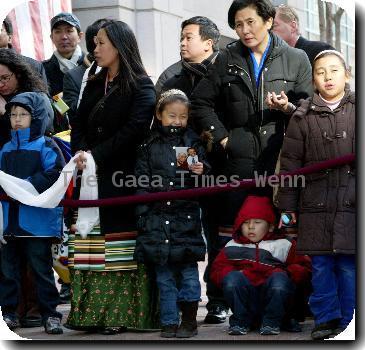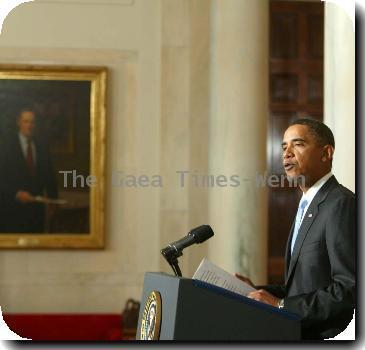Jurors in Blagojevich trial tell judge they’ve reached agreement on just 2 counts
By APThursday, August 12, 2010
Jurors in Blago trial say they agree on 2 counts
CHICAGO — Jurors in the corruption trial of former Illinois Gov. Rod Blagojevich said Thursday that they have reached agreement on just two of 24 counts against him, and haven’t even begun discussing 11 of the counts. The judge quickly said he would tell them to go back and deliberate more.
The exchange once again left the courtroom in a state of uncertainty, with lawyers and legal experts saying there is no way to know for sure how long the deliberations may go on — but some saying the apparent deadlocks on some counts were a good sign for Blagojevich and his co-defendant brother, Robert.
The 11 counts the jury has yet to discuss involve wire fraud. Most of them deal with FBI wiretap recordings and the allegation that Blagojevich tried to sell or trade President Barack Obama’s old Senate seat.
The jurors did not say which two of the 24 counts they had agreed on, nor what their decision was.
Former state appellate Judge David Erickson said the jury’s apparent deadlock on 11 counts looks good for the defense. He said if 12 jurors can’t come to an agreement, it shows some have doubts that prosecutors made their case.
“To this point, if we were keeping score, I think the defense strategy worked spectacularly,” said Erickson, now a law professor in Chicago.
The defense did not call a single witness, including the former governor himself, and argued that Blagojevich was a big talker but never committed a crime.
Michael Helfand, a Chicago attorney not involved in the case, said he expected jurors to tell the judge soon that they are hopelessly deadlocked.
“The defense has every reason to be thrilled,” he said. “This jury has been deliberating for such a long time — the chances of someone changing mind now aren’t good.”
Others believe the jury may need some time to work through the remaining counts.
“If they haven’t addressed the wire fraud counts, we’re going to be here until next week,” Richard Kling, a professor at Chicago-Kent College of Law, told WLS-TV.
Joel Levin, a former federal prosecutor, said it could be that one or two jurors are “really digging their heels in” on other counts and the jury has just not gotten to the wire fraud counts.
He said what is particularly baffling is that there have been no notes of substance to the judge throughout deliberations. Until the eleventh day, they had sent only two notes.
“Given they’ve accomplished virtually nothing you would have thought we’d heard something,” he said.
Which counts they’ve agreed or disagreed on is crucial, especially when it comes to arguably the most serious charge — Count One, racketeering.
Prosecutors front-loaded the indictment, requiring jurors decide as they considered that racketeering charge whether Blagojevich committed more than 20 separate illegal actions, from trying to sell the Senate seat to squeezing a construction executive for campaign cash.
Many other charges, including wire fraud, rely on whether jurors have already agreed Blagojevich committed the long list of actions under racketeering. That makes Count One a kind of legal domino; if jurors convict on it, many other counts should also come in as guilty.
Asked if Thursday’s note suggests jurors are bogged down on racketeering, Blagojevich attorney Sheldon Sorosky agreed.
“Yes, it does seem to,” he said.
Blagojevich did not comment after the hearing. But asked if he felt it was good news for his client, his attorney Sam Adam Sr. responded, “I don’t know. I’ve learned a long time ago not to guess what juries are thinking.”
Blagojevich and his brother listened intently, sitting at the edge of their chairs, as Judge James B. Zagel read the jury note. After the hearing adjourned, the ex-governor quickly smiled in a huddle with attorneys. He put his arms around his wife Patti’s shoulder.
The jury had sent a note to Zagel on Wednesday saying they were stuck, but without giving specifics. He had asked for clarification.
Blagojevich, 53, has pleaded not guilty to charges including that he tried to sell or trade the Senate seat appointment for a Cabinet post, private job or campaign cash and tried to leverage the power of his office for personal gain. If convicted, he could face up to $6 million in fines and a sentence of 415 years in prison, though he is sure to get much less time under federal guidelines.
His brother, a Tennessee businessman, faces four counts and has pleaded not guilty.
Judges have a lot of autonomy about what to do in case of deadlock over some or all counts, said Helfand. Besides sending them back to keep trying, a judge can ask jurors if there’s anything he could provide that might help them reach a verdict — for instance, transcripts of specific witness testimony.
Zagel praised the Blagojevich jurors on Wednesday, calling them disciplined and diligent. Any discord has apparently been civil, Zagel told the court, with no reports of shouting or screaming from the room where they gather each weekday.
“Even though we feel like they’ve been deliberating a long time, given the number of counts, they really could keep at it longer,” said Nancy Marder, a professor at Chicago-Kent College of Law. “Jurors don’t have a sense of how long is long.”
Associated Press Writers Karen Hawkins and Sophia Tareen contributed to this report.
Tags: Barack Obama, Campaign Finance Improprieties, Campaigns, Chicago, Fraud And False Statements, Illinois, North America, Racketeering, United States





